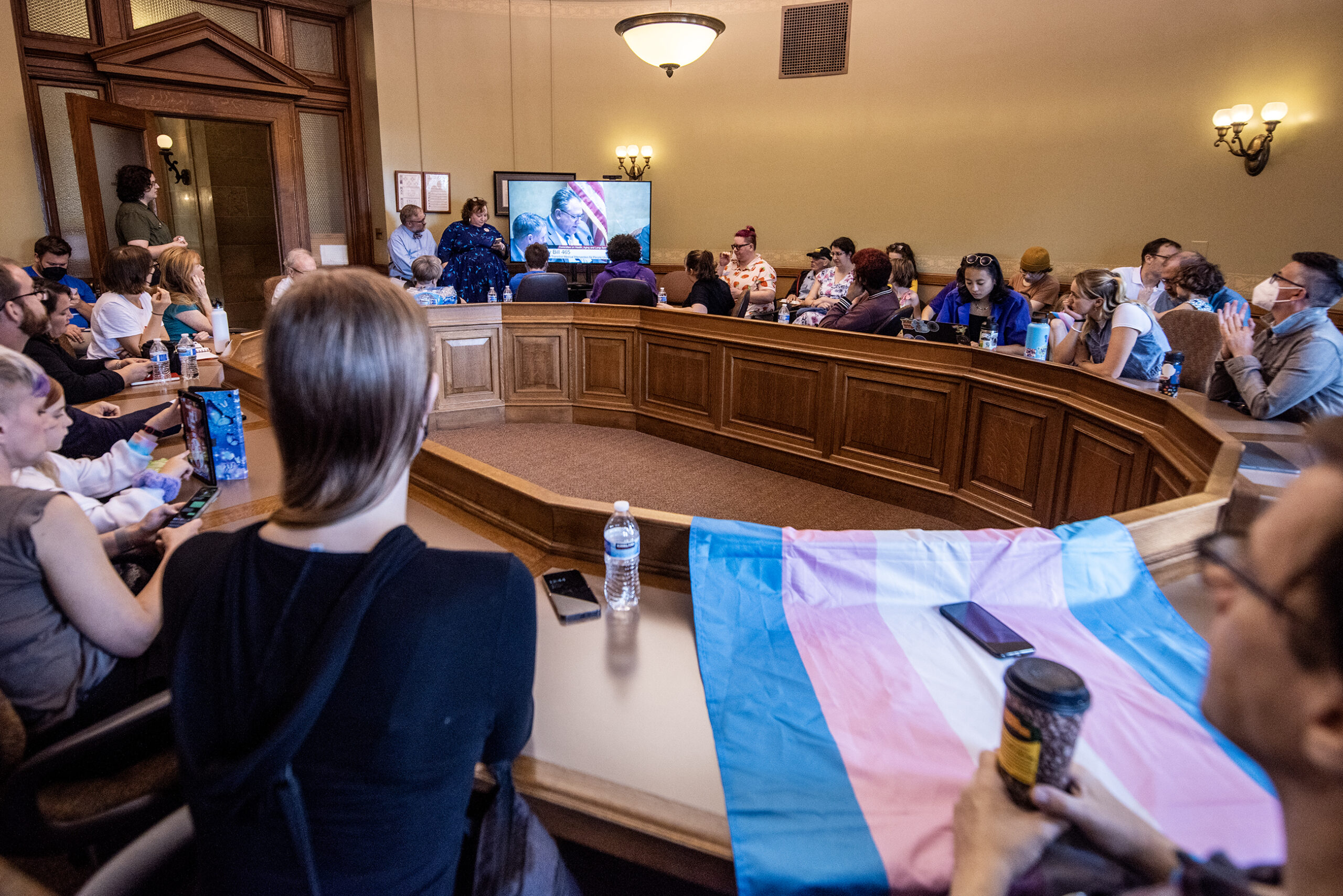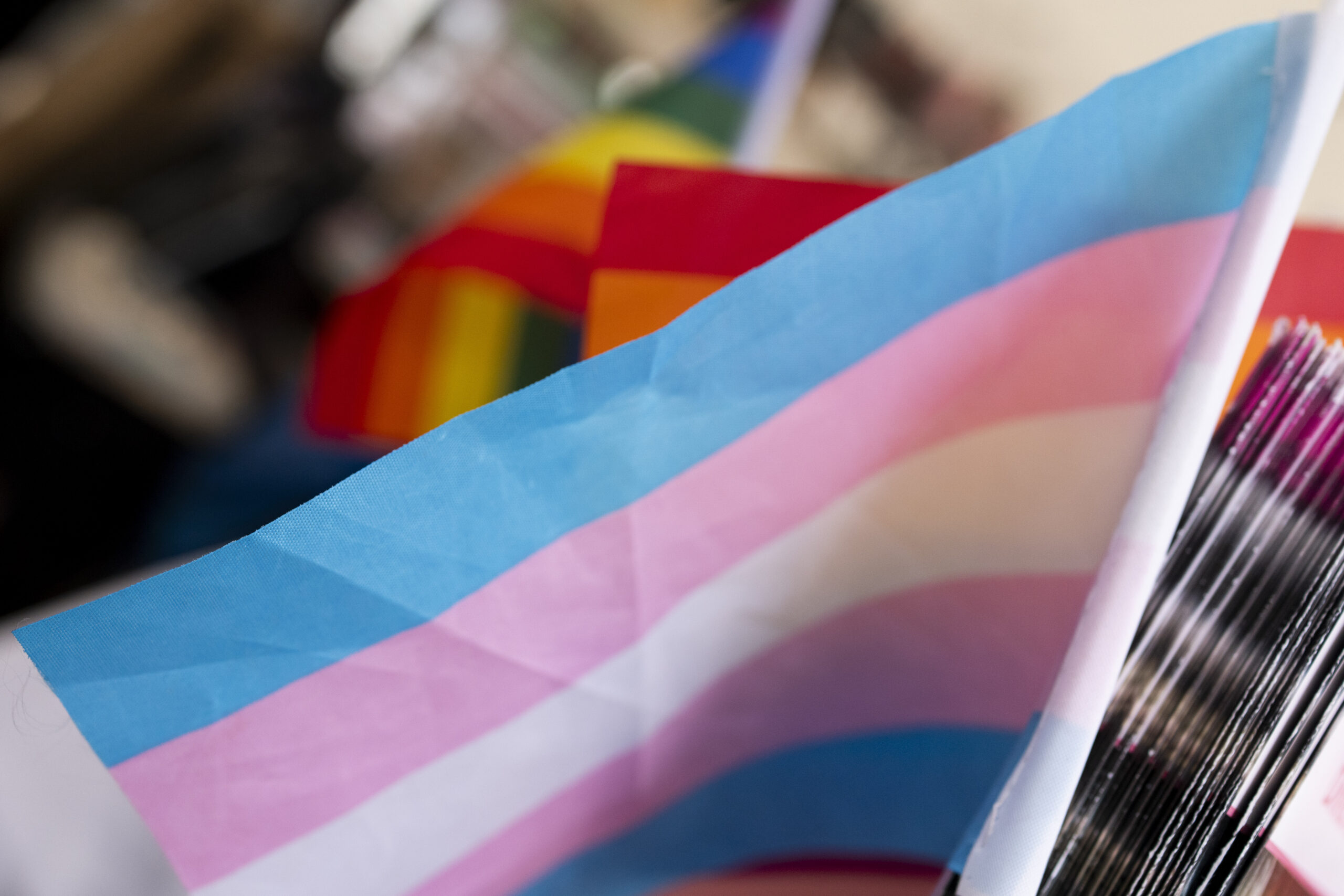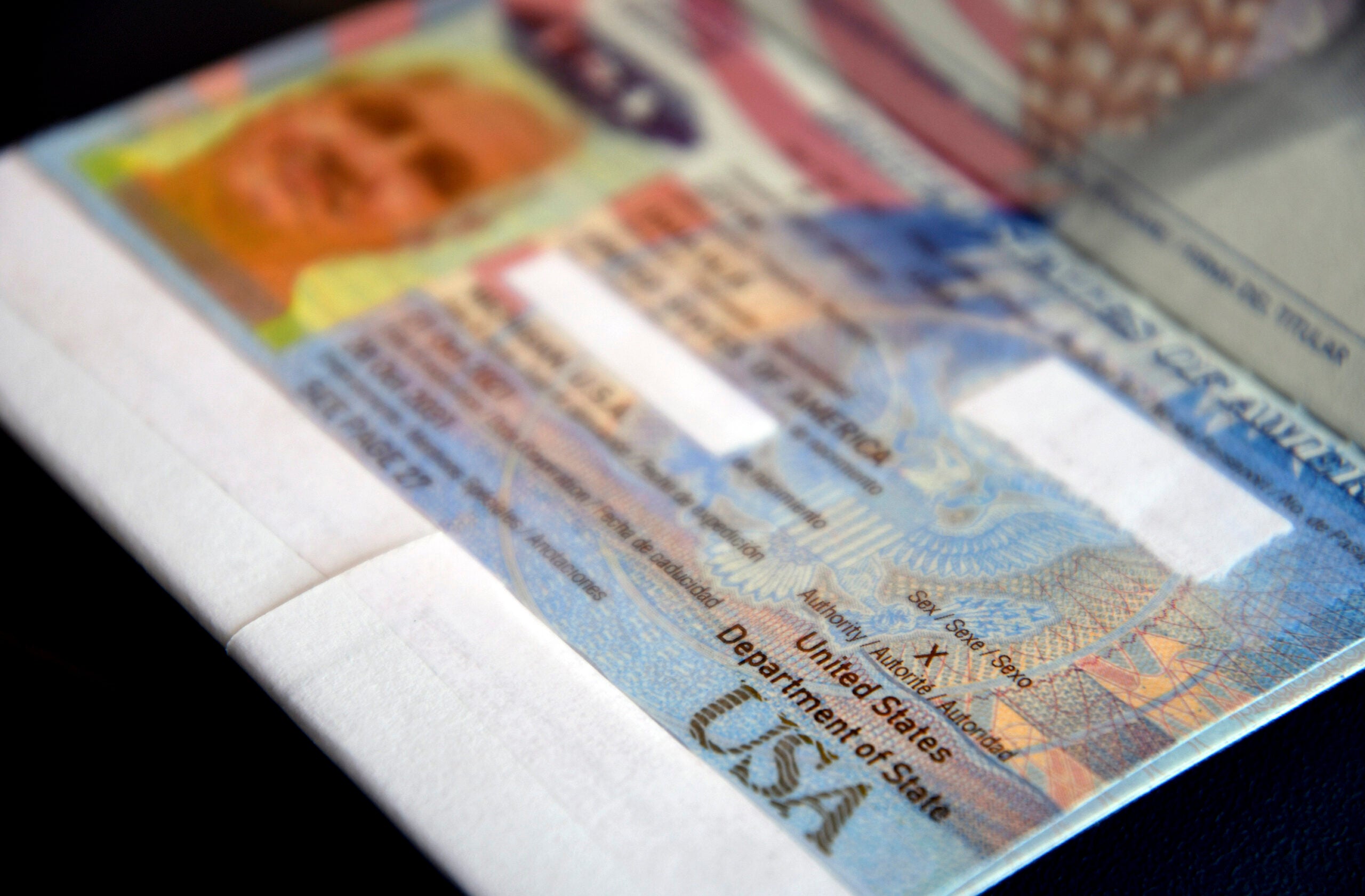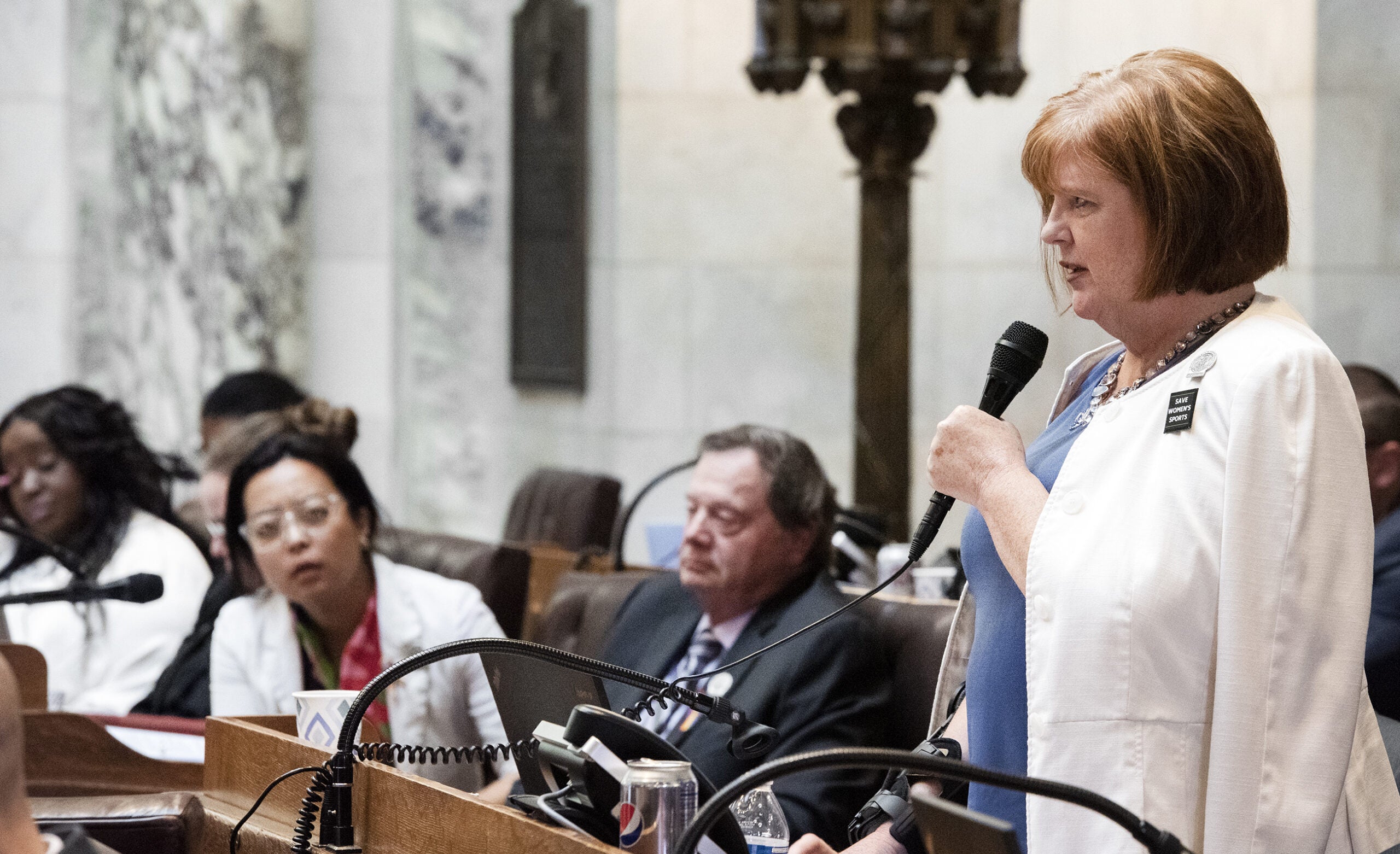Lawmakers are hearing testimony on a trio of Republican-backed bills addressing transgender youth, as hours of contentious public comment on the proposals stretched into Wednesday evening.
One bill would prohibit certain types of gender-affirming health care — including the use of surgeries, puberty blocking drugs or hormone therapy — for patients younger than 18.
Additionally, a pair of bills would define male and female as corresponding to the sex listed on someone’s birth certificate as assigned by a physician at birth, and it would create three categories for sports — one for males, one for females, as well as a third co-ed category for males and females competing together. The bills explicitly state that people assigned male at birth would be prohibited from playing on female teams.
News with a little more humanity
WPR’s “Wisconsin Today” newsletter keeps you connected to the state you love without feeling overwhelmed. No paywall. No agenda. No corporate filter.
Under Assembly Bill 378, those categories would apply to teams with the University of Wisconsin and state technical college system. Under Assembly Bill 377, the categories would apply to public K-12 schools, as well as to private schools that part of Wisconsin’s parental choice program.
Evers promises to veto the bills
Even if the proposals clear Wisconsin’s Republican-led Legislature, Democratic Gov. Tony Evers has promised to stop the bills from becoming law. It would take a two-thirds majority to override his veto, and Republicans are two votes short of that supermajority in the House.
“My message to LGBTQ folks — especially our trans kids — is this: you are welcome, you are wanted, and you belong here,” Evers posted to social media last week. “And I’ll veto any bill that makes Wisconsin a less welcoming, less inclusive, and less safe place for you to be who you are.”
We’re going to stop these anti-LGBTQ attacks on our trans kids. And we’re going to do it together. pic.twitter.com/POSPstMpVB
— Governor Tony Evers (@GovEvers) October 4, 2023
In a letter released Wednesday, Department of Public Instruction Superintendent Jill Underly also responded to the proposals.
“Supporting trans athletes does not threaten girls,” Underly wrote. “Supporting trans kids — including trans student-athletes — supports their physical and mental health. Attacking them in the name of protecting girls harms everyone involved, and lets transphobic policies hide behind people hurling accusations of sexism.”
Violation of ban would result in provider losing medical license
Assembly Bill 465 would prohibit certain types of medical intervention for the “purpose of changing the minor’s body to correspond to a sex that is discordant with the minor’s biological sex.” Along with hormone therapy and puberty blocking drugs used for the purpose of gender transition, the bill prohibits “removing any otherwise healthy or nondiseased body part or tissue,” including surgeries such as mastectomies.
Any health care provider who violates the ban would have his or her medical license revoked following an investigation and hearing.
“The ‘Help Not Harm’ bill is actually the bill that would create the space and time for minors to consider the long-term consequences of gender transition and make an appropriate choice for them when they become a legal adult,” said Rep. Scott Allen, R-Waukesha, an author of the proposal.
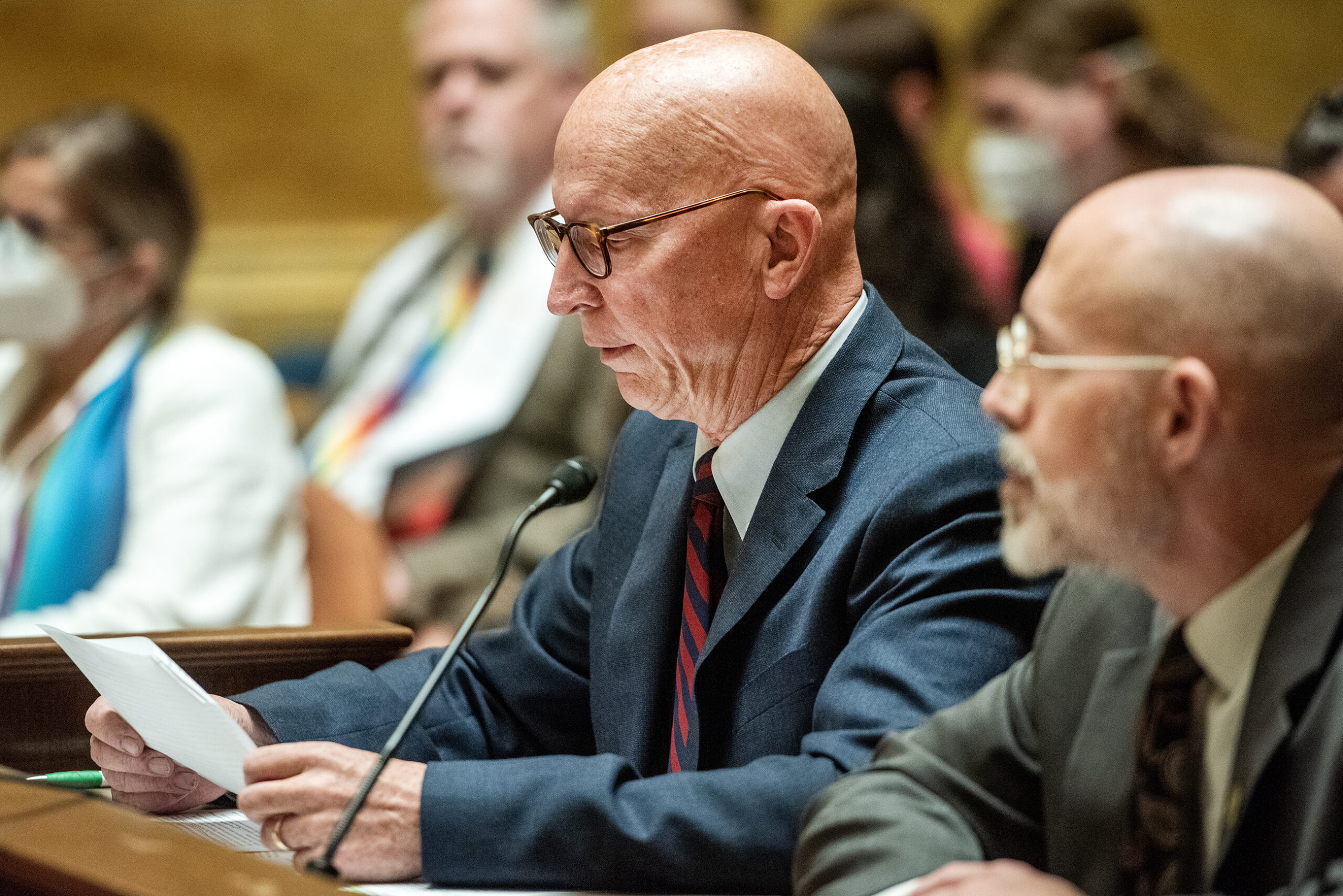
The bill includes exceptions for medical intervention when someone has intersex characteristics, such as being born with ambiguous genitalia, having both ovarian and testicular tissue or situations when “a physician has determined through genetic testing that the minor does not have the normal sex chromosome structure, sex steroid hormone production, or sex steroid hormone action for a biological male or biological female.”
The conservative group Wisconsin Family Action has registered in favor of the ban. Organizations opposing it include the Medical College of Wisconsin, the Wisconsin Medical Society, the Wisconsin chapter of the American Academy of Pediatrics and the Wisconsin chapter of the National Association of Social Workers.
“Lack of gender affirmation, and the resulting gender dysphoria, can lead to depression, anxiety, suicidality, substance-use disorders and an increased risk of sexually transmitted disease,” said Marc Herstand, who leads the Wisconsin NASW.
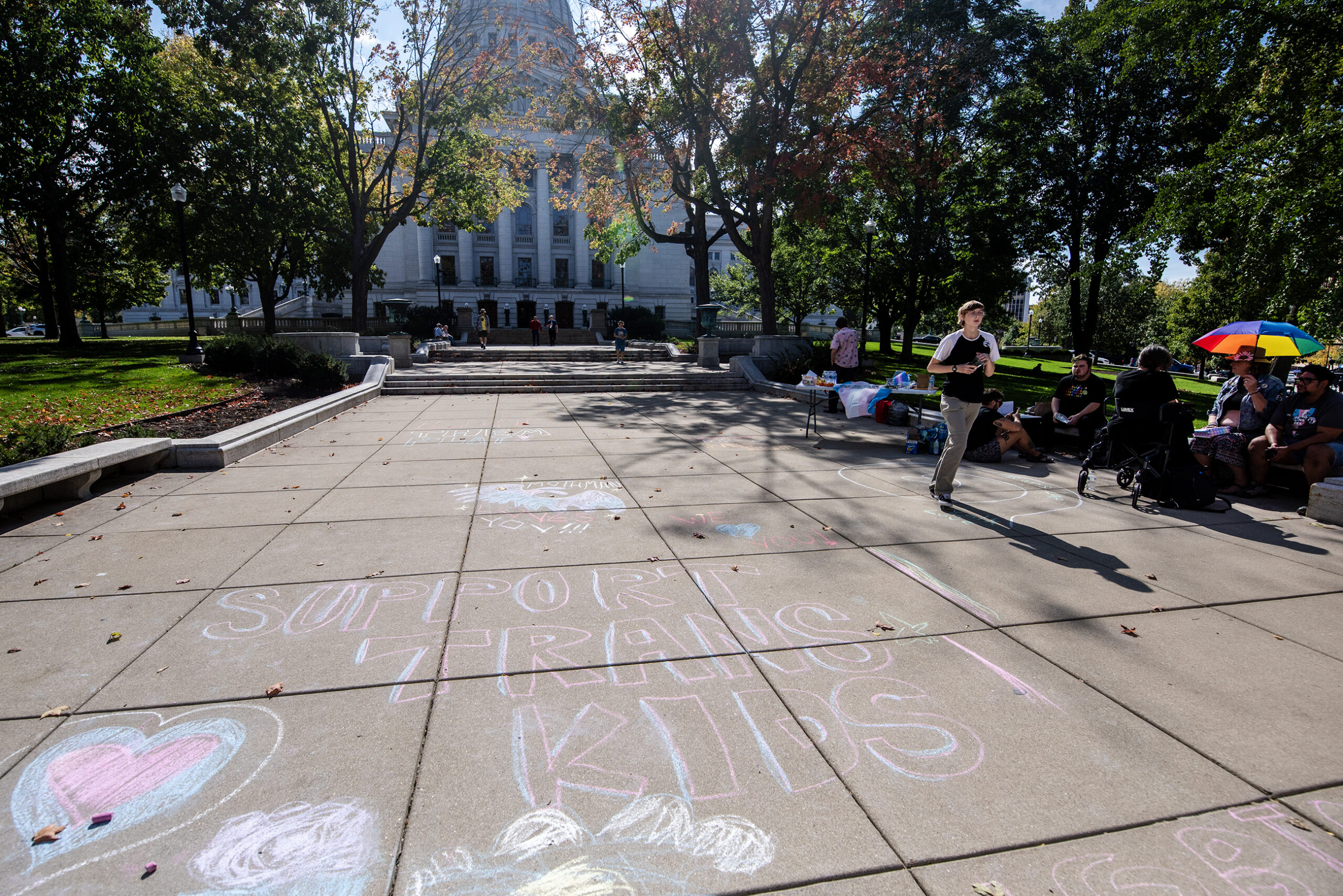
Hundreds of people attended the hearings Wednesday to register their support or opposition to the legislation.
Among those opposed was 17-year-old Bailey Mosling, who said he began hormone blockers in eighth grade and started taking testosterone at age 15. As a result of that medical intervention, Mosling said he will not need any gender-affirming surgeries.
“Getting gender-affirming care as a minor saved my life, and so I’m here to educate those who may be trying to take that away from other youth,” Mosling said. “I want legislators to know that being a trans youth is a really difficult thing when there are constantly people around you telling you that what you’re thinking and what you’re feeling is incorrect. And it’s important that we see trans youth as real people with real feelings and that not all trans youth are mentally ill.”
Pair of bills would designate sports as co-ed or based on sex assigned at birth
Also on Wednesday, committees weighed testimony on the bills that would require athletes assigned male at birth to play on sports teams that are either designated as co-ed or male.
State Rep. Barbara Dittrich, R-Oconomowoc, says the aim is protecting fair play.
“When a female basketball is smaller than a male basketball, we should be foolish to think that hormone treatment or surgery can change the advantage of an individual’s hand size,” said Dittrich, one of the proposal’s sponsors. “We cannot go back to the days where women were deprived of their equal participation and deprived of the respect they deserve.”
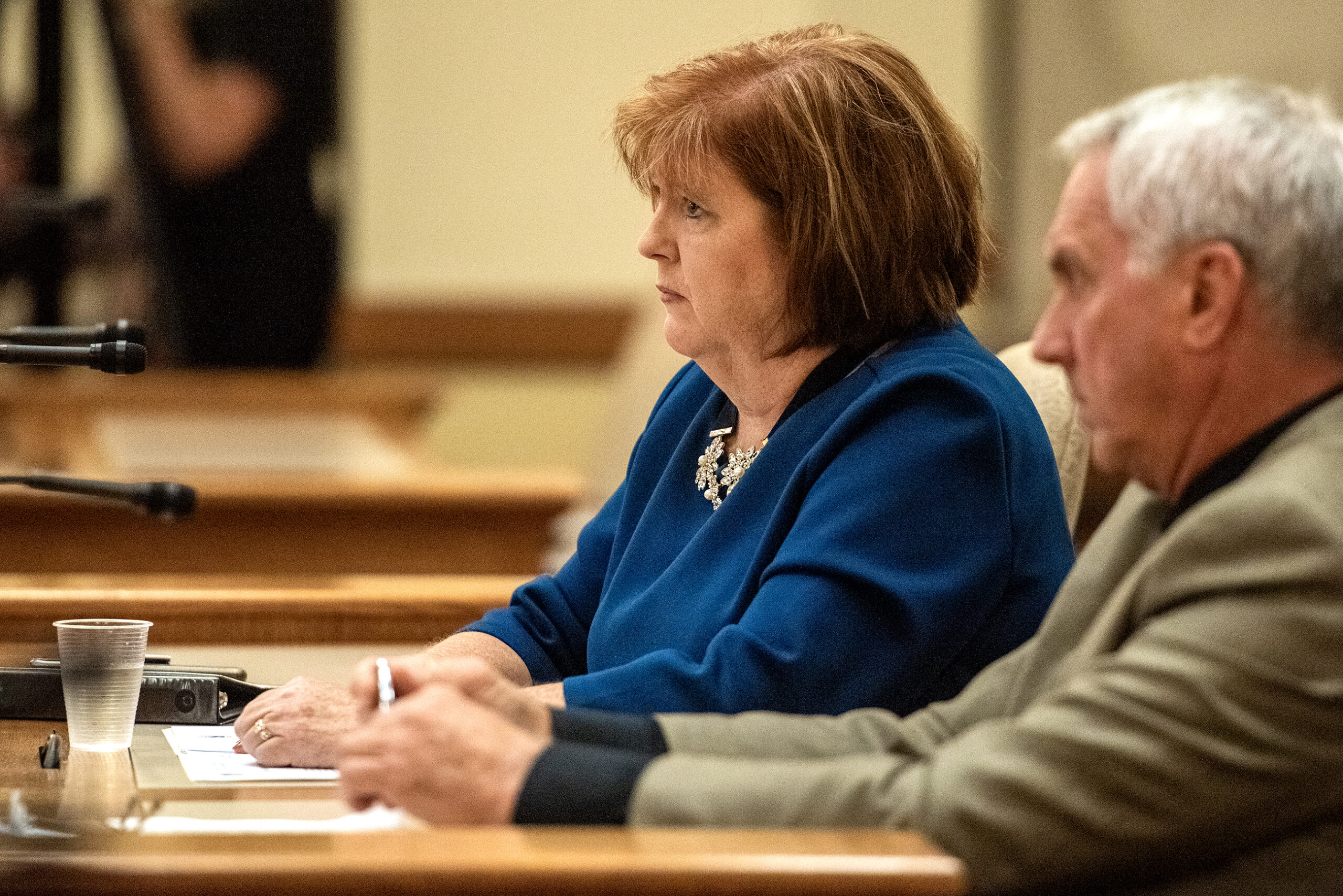
Dittrich and other backers also raised concerns that female athletes would have higher rates of injuries if they played with people assigned male at birth, or that they could be exposed to male genitalia in locker rooms. The bills do not mention locker rooms specifically, although they do refer to participation in interscholastic, intramural or club sports.
Hannah Roberts Villnave, a reverend at the Fox Valley Unitarian Fellowship in Appleton, told lawmakers that, in order to make sports welcoming to all children, Wisconsin must let trans kids play on teams that correspond to their identifying genders. The creation of a co-ed category is not a solution, Roberts Villnave said.
“You may say that creating a third category somehow makes it equal under the law,” Roberts Villnave said. “But I think if we all put on our common sense hats, and remember what it is like to be 11 years old, and what it feels like to be singled out as somehow special — and not in a good way — that is not an equitable solution.”
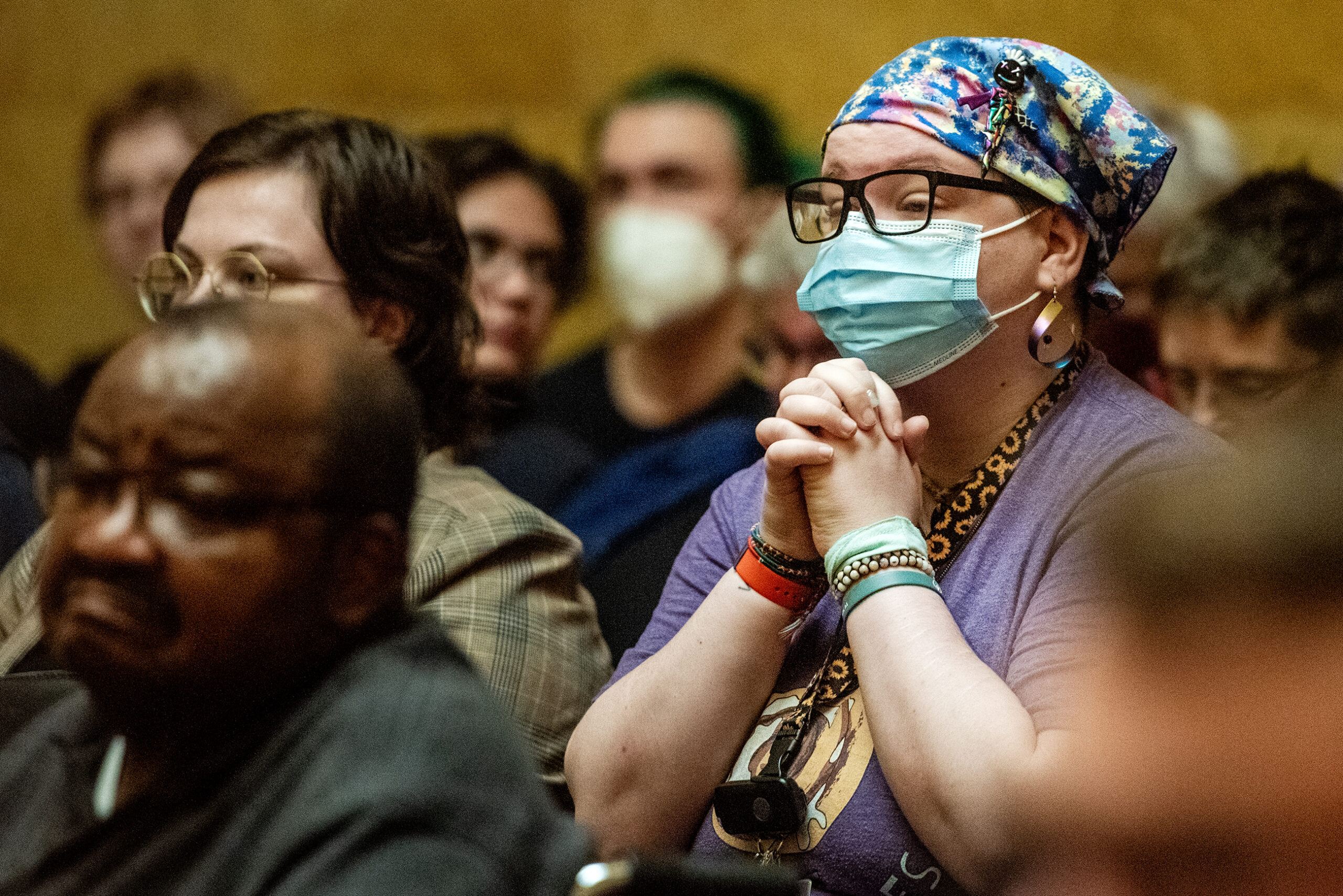
Similar bills on gender and sports participation cleared Wisconsin’s Assembly in 2021, but stalled in the state Senate.
About 1.3 million Americans over 18 years old identity as transgender, representing 0.5 percent of the U.S. adult population, according to an estimate from the Williams Institute at the UCLA School of Law. The institute estimates about 300,000 youth between 13 and 17 identify as transgender, making up about 1.4 percent of that age group.
Even if Evers successfully blocks the legislation, Democrats and other critics say even the introduction of such proposals is harming a vulnerable minority.
Hanna Barton, a postdoctoral researcher of health care systems at the University of Wisconsin-Madison, said they came to Capitol Wednesday to support people who testified against the bills.
“The climate of our country shapes how people access health care — a lot of people are afraid that they can’t get the care that they need,” Barton said. “Laws like this, and even just the fact that this is happening, sends shockwaves through communities.”
Wisconsin’s bills come amid a wave of legislation nationwide targeting transgender health care and sports participation.
More than 20 states have approved or implemented bans on gender-affirming medical intervention for minors, according to the progressive Movement Advancement Project, or MAP. Five states — Oklahoma, Alabama, Florida, North Dakota and Idaho — make it a felony to provide that care. In at least half a dozen states, courts have blocked the bans in full or in part, according to MAP.
Wisconsin Public Radio, © Copyright 2026, Board of Regents of the University of Wisconsin System and Wisconsin Educational Communications Board.

